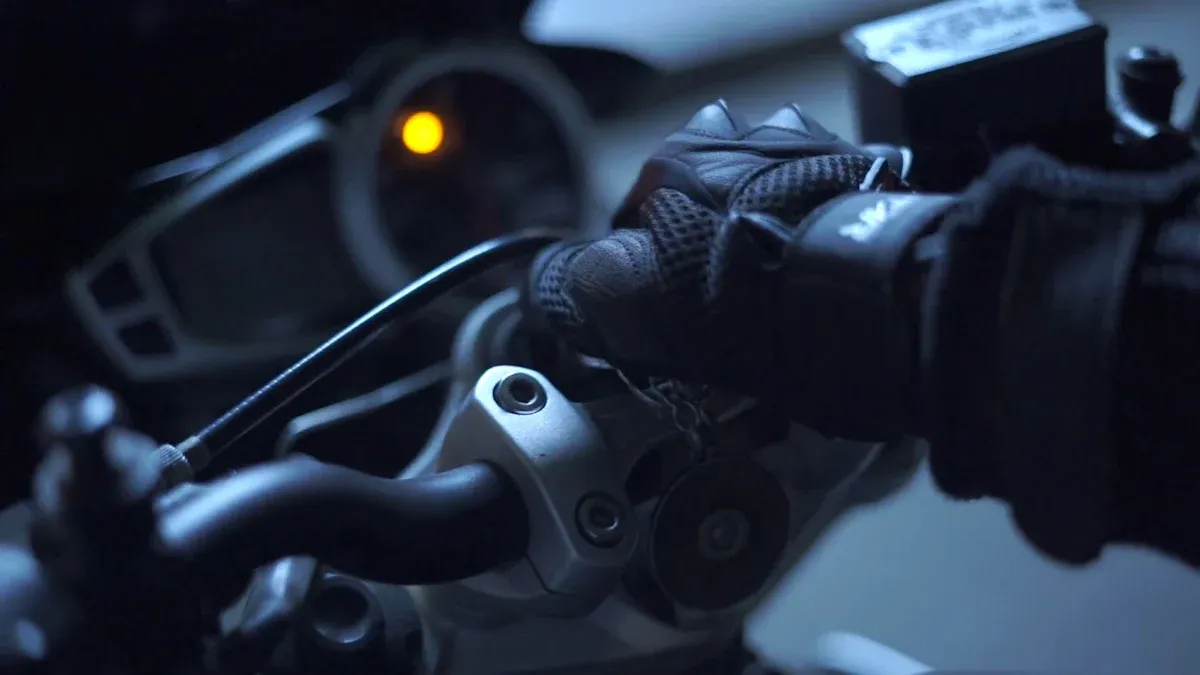
A faulty clutch master cylinder can cause several noticeable issues. You may find it harder to shift gears or notice the clutch pedal feels sticky. Low or discolored clutch fluid often signals a problem. Left unchecked, this can also affect the clutch slave cylinder, leading to more severe damage. Early detection is key.
Key Takeaways
- Trouble changing gears might mean the clutch master cylinder is bad. Fix it soon to stop more damage.
- A soft or stuck clutch pedal shows possible issues. Check how the pedal feels often to drive safely.
- Low or dirty clutch fluid can cause big problems. Look at the fluid levels often to keep your car working well.
Common Symptoms of a Faulty Clutch Master Cylinder

Difficulty Shifting Gears
You may notice difficulty shifting gears when the clutch master cylinder starts failing. This happens because the hydraulic pressure needed to engage the clutch decreases. Without proper pressure, the clutch cannot fully disengage, making gear changes feel stiff or impossible. If ignored, this issue can lead to further damage to the clutch system, including the clutch slave cylinder.
Spongy or Sticky Clutch Pedal
A spongy or sticky clutch pedal often signals a problem with the clutch master cylinder. When you press the pedal, it may feel soft or fail to return to its original position. This occurs due to air or moisture in the hydraulic system or internal wear in the cylinder. A sticky pedal can make driving uncomfortable and unsafe.
Low or Discolored Clutch Fluid
Low or discolored clutch fluid is another warning sign. You should check the fluid reservoir regularly. If the fluid appears dark or dirty, it may indicate contamination or internal seal failure. Low fluid levels can also affect the clutch slave cylinder, reducing its ability to function properly.
Clutch Fluid Leaks
Fluid leaks around the clutch master cylinder or under the vehicle are a clear indication of trouble. Leaks reduce hydraulic pressure, which directly impacts clutch performance. Inspect the area around the cylinder for wet spots or stains. Addressing leaks promptly can prevent damage to other components, such as the clutch slave cylinder.
Unresponsive or Hard-to-Press Clutch Pedal
An unresponsive or hard-to-press clutch pedal can make driving difficult. This symptom often points to a failing clutch master cylinder. When the cylinder cannot generate enough hydraulic pressure, the pedal becomes harder to operate. This issue can worsen over time, potentially leading to complete clutch failure.
How Symptoms Impact Vehicle Performance
Reduced Clutch Responsiveness
When the clutch master cylinder fails, you may notice reduced responsiveness in your clutch pedal. This happens because the hydraulic pressure needed to operate the clutch decreases. Without proper pressure, the clutch pedal feels sluggish, making it harder to engage or disengage gears. This issue can make driving less smooth and more frustrating, especially in stop-and-go traffic.
Increased Risk of Transmission Damage
A faulty clutch master cylinder doesn’t just affect the clutch system; it can also harm your transmission. When the clutch doesn’t disengage fully, the gears grind during shifts. Over time, this grinding can wear down the transmission components, leading to costly repairs. Protecting your transmission starts with addressing clutch issues early.
Potential for Complete Clutch Failure
Ignoring the symptoms of a failing clutch master cylinder can lead to complete clutch failure. When the hydraulic system loses pressure entirely, the clutch becomes unusable. You won’t be able to shift gears, leaving your vehicle inoperable. This situation often requires both the clutch master cylinder and the clutch slave cylinder to be replaced.
Connection Between Clutch Master Cylinder and Clutch Slave Cylinder
The clutch master cylinder and clutch slave cylinder work together to operate your vehicle’s clutch system. When the master cylinder fails, it often impacts the slave cylinder as well. A leak or pressure loss in the master cylinder reduces the slave cylinder’s ability to function. Inspecting both components ensures the entire hydraulic system remains in good condition.
Diagnosing a Faulty Clutch Master Cylinder

Visual Inspection for Leaks or Fluid Condition
Start by visually inspecting the clutch master cylinder and its surrounding area. Look for any signs of fluid leaks, such as wet spots or stains near the cylinder or under the vehicle. Check the clutch fluid reservoir as well. If the fluid appears dark, dirty, or unusually low, it could indicate internal seal damage or contamination. Regularly monitoring the fluid condition helps you catch potential issues early.
Testing the Clutch Pedal for Resistance
Press the clutch pedal and observe how it feels. A healthy clutch pedal should offer consistent resistance. If the pedal feels spongy, soft, or sticky, it may point to air or moisture in the hydraulic system. A hard-to-press pedal could signal a failing clutch master cylinder. Testing the pedal’s resistance provides valuable clues about the system’s condition.
Grinding or Unusual Noises During Clutch Engagement
Pay attention to any grinding or strange noises when you engage the clutch. These sounds often occur when the clutch master cylinder fails to generate enough hydraulic pressure. Insufficient pressure can prevent the clutch from fully disengaging, leading to gear grinding. Ignoring these noises can result in damage to other components, including the clutch slave cylinder.
When to Seek Professional Help
If you notice any of these symptoms and feel unsure about diagnosing the issue, consult a professional mechanic. They have the tools and expertise to identify the problem accurately. Addressing a faulty clutch master cylinder promptly can prevent further damage and costly repairs.
Addressing clutch master cylinder issues early ensures your vehicle stays safe and reliable.
- What you should do:
- Inspect for leaks or unusual pedal behavior.
- Check fluid levels regularly.
Post time: Apr-01-2025

